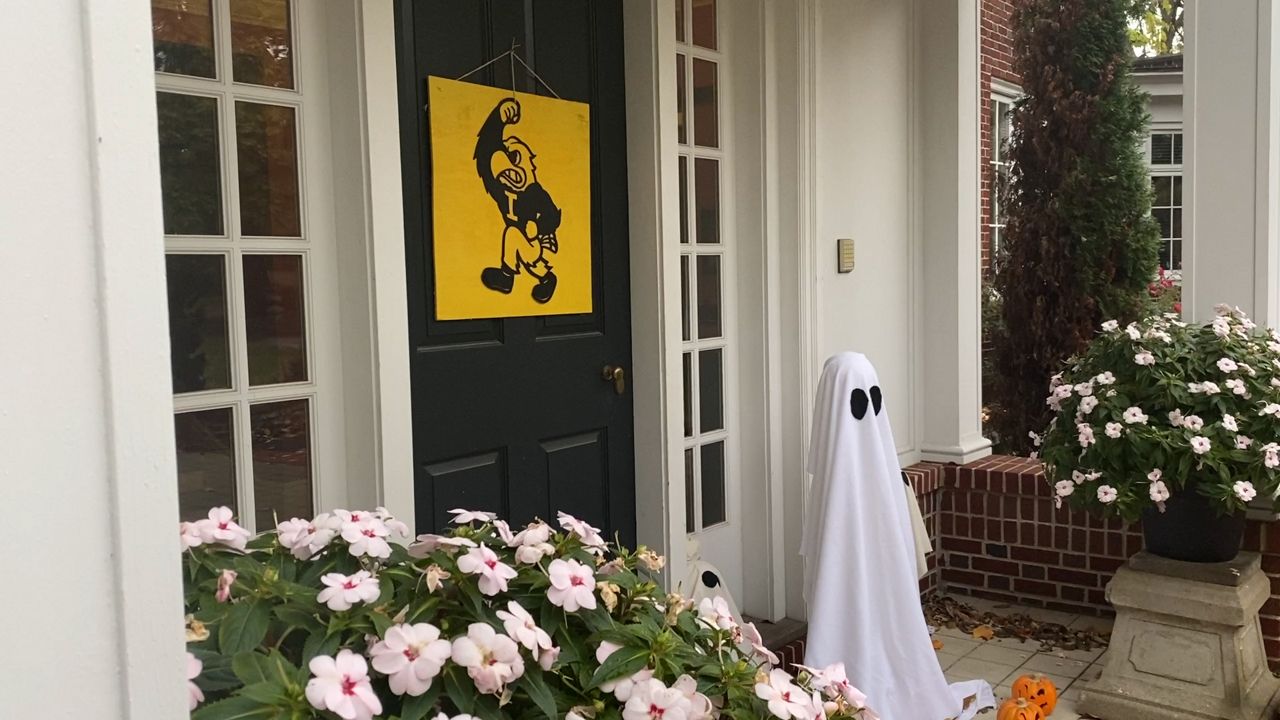A federal appeals court late Friday issued an administrative stay temporarily blocking President Joe Biden’s plan to cancel billions of dollars in federal student loans.
The Eighth Circuit Court of Appeals issued the stay while it considers a motion from six Republican-led states to block the loan cancellation program. The stay ordered the Biden administration not to act on the program while it considers the appeal.
The order came just days after people began applying for loan forgiveness. It was not immediately clear how the stay would impact those have already applied.
The court set a deadline of Monday at 5 p.m. CDT for a response from the Biden administration and a 5 p.m. CDT Tuesday deadline for any reply from the appellants.
A notice of appeal to was filed by the states late Thursday, hours after U.S. District Judge Henry Autrey in St. Louis ruled that since the states of Nebraska, Missouri, Arkansas, Iowa, Kansas and South Carolina failed to establish standing, “the Court lacks jurisdiction to hear this case.”
Separately, the six states also asked the district court for an injunction prohibiting the administration from implementing the debt cancellation plan until the appeals process plays out.
Speaking at Delaware State University, a historically Black university where the majority of students receive federal Pell Grants, Biden on Friday said nearly 22 million people have applied for the loan relief in the week since his administration made its online application available.
Under the plan, which was announced in August, borrowers qualify for up to $10,000 in forgiveness if they made less than $125,000 per year in 2020 or 2021, or up to $20,000 for Pell grant recipients.
The Congressional Budget Office has said the program will cost about $400 billion over the next three decades. James Campbell, an attorney for the Nebraska attorney general’s office, told Autrey at an Oct. 12 hearing that the administration is acting outside its authorities in a way that will cost states millions of dollars.
Biden on Friday depicted debt relief as a “game-changer” for millions of working and middle-class Americans, especially borrowers of color.
“We’re hearing from people all over the country. Over 10,000 students have written me letters so far,” Biden said. “It’s about as easy to apply as signing up while hanging out with your friends or at home and watching a movie.”
Of the approximately 40 million Americans who are eligible for student loan relief, more than 60% are Pell grant recipients.
Plus, 71% of Black borrowers are Pell recipients, along with 65% of Latino borrowers.
The Biden administration has pointed to the fact that 90% of relief will go to Americans making less than $75,000 per year.
“Our student loan plan lowers costs for Americans as they recover from the pandemic, to give everybody a little more breathing room,” the president said Friday. “I want to be clear who’s going to benefit most: working people, middle-class folks.”
The announcement immediately became a major political issue ahead of the November midterm elections.
Conservative attorneys, Republican lawmakers and business-oriented groups have asserted that Biden overstepped his authority in taking such sweeping action without the assent of Congress. They called it an unfair government giveaway for relatively affluent people at the expense of taxpayers who didn’t pursue higher education.
Some Democratic lawmakers facing tough reelection contests have distanced themselves from the plan.
President Biden on Friday renewed criticisms of Republicans who have sharply attacked the student loan relief plan as costly and unfair, painting some of them as hypocritical for having gotten pandemic relief loans forgiven. He called out Texas Sentor Ted Cruz for saying loan relief would benefit “slacker baristas.”
“Who in the hell do they think they are?” Biden said.
“We can afford student relief,” he added, pointing to his work to reduce the federal deficit.
Republicans, meanwhile, have also pointed to the cost of the plan, which is expected to cost $400 billion, according to the Congressional Budget Office.
“He’s wanting to give [relief] to those who went to Ivy League schools and have high dollar degrees,” Arkansas Attorney General Leslie Rutledge, who is leading GOP states’ challenge to Biden’s program, said in an interview with Fox News earlier this month.
“Putting that debt on the backs of hardworking Americans — and our plumbers and mechanics, machinists and nurses and teachers — and so this is against the law … and it’s patently unfair,” she said.
The six states sued in September. Lawyers for the administration countered that the Department of Education has “broad authority to manage the federal student financial aid programs.” A court filing stated that the 2003 Higher Education Relief Opportunities for Students Act, or HEROES Act, allows the secretary of education to waive or modify terms of federal student loans in times of war or national emergency.
“COVID-19 is such an emergency,” the filing stated.
The HEROES Act was enacted after the Sept. 11, 2001, terrorist attacks to help members of the military. The Justice Department says the law allows Biden to reduce or erase student loan debt during a national emergency. Republicans argue the administration is misinterpreting the law, in part because the pandemic no longer qualifies as a national emergency.
Justice Department attorney Brian Netter told Autrey at the Oct. 12 hearing that fallout from the COVID-19 pandemic is still rippling. He said student loan defaults have skyrocketed over the past 2 1/2 years.
On Thursday, a federal judge dismissed an effort by six Republican-led states to block the plan, hours after Supreme Court Justice Amy Coney Barrett rejected an appeal in another case brought by a Wisconsin taxpayers group.
Spectrum News’ Austin Landis and David Mendez contributed to this report.




